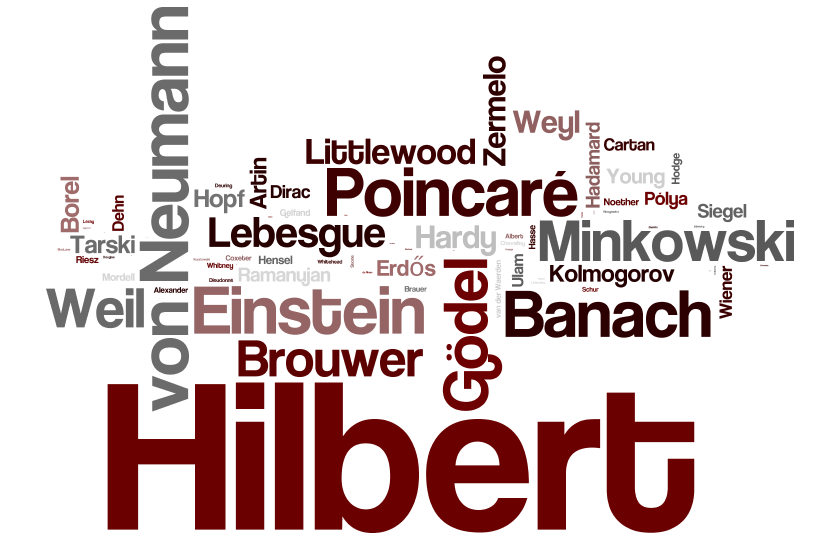When I was a teenager, I was given the book Men of Mathematics by E. T. Bell, and I rather enjoyed it. I know that this book has been criticized for various reasons and I might even agree with some of the criticism, but let's not digress onto that. E. T. Bell made a reasonable list of 34 of the greatest mathematicians from the ancient Greek period to the end of the 19th century. His list isn't perfect — maybe he should have included Klein or skipped Poncelet — but no such list can be perfect anyway. I think that his selection was good. He also made the careers of these mathematicians exciting and he addressed why mathematicians care about them today. It helped me learn what achievements and topics in mathematics are important.
(Just to head off discussion, the standard complaints include that the title is sexist and so is the book, that Bell was loose with biographical facts, and that he "chewed the scenery".)
After the period covered by Bell, there is a 50-70 year gap, followed by the the Fields Medals. The list of Fields Medalists has its own limitations, but it is another interesting, comparably long list of great mathematicians. Somewhat accidentally, this list also orients and motivates advanced mathematics students today.
But who are the great mathematicians in the gap itself, that is, those born between 1850 and 1900, or say between 1860 and 1910? (Or 1920 at the latest; that is what I had before.) There is a good expanded list of mathematicians with biographies at the St. Andrews site. However, it is too long to work as a sequel to Bell's book. (Not that I plan to write one; I'm just asking.) If you were to make a list of 20 to 50 great mathematicians in this period, how would you do it or who would they be? Presumably it would include Hilbert, but who else? (Poincaré was born in 1854 and is the latest born in Bell's list.)
For example, I know that there was the IBM poster "Men of Modern Mathematics" that also earned some criticism. But I don't remember who was listed, and my recollection is that the 1850-1900 period was somewhat cramped.
I decided based on the earliest responses to convert this list to community wiki. But I am not just asking people to throw out names one by one and then vote them up. If a good reference for this question already exists, or if there is some kind of science to make a list, then that would be ideal. If you would like to post a full list, great. If you would like to list one person who surely should be included and hasn't yet been mentioned, then that's also reasonable. It may be better to add years of birth and death in parentheses, for instance "Hilbert (1862-1943)".
Note: To make lists, you should either add two spaces to the end of each line, or " - " (space dash space) to the beginning of each line.

